 —————
—————
Hellraisers Journal – Monday April 13, 1914
Trinidad, Colorado – State Senator Robinson Opines on Rockefeller’s Conscience
From the New York American of April 12, 1914:
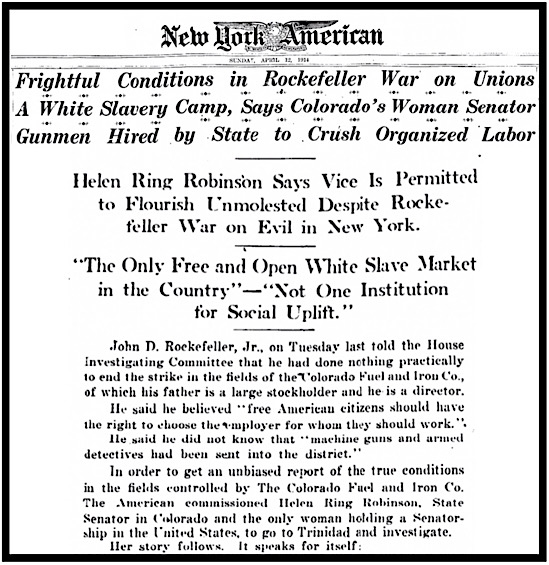
By Helen Ring Robinson.
State Senator in Colorado, an Authority on
Economic Conditions in That State.
TRINIDAD, COLO., April 11—What is a conscience? The question comes like a shout to an observer down here in the Colorado strike zone, where the Rockefeller interests are paramount, after reading that John D. Rockefeller, Jr., declared before the Congressional committee investigating that strike that his “conscience acquits him” of responsibility for the conditions existing to-day in these coal fields.
Under such circumstances the Rev. R. Cook, of Trinidad, declares that the devil must have a large option on the conscience of John D. Rockefeller, Jr., but he insists on letting it go at that. He will not answer the question, “What is a conscience?”
Nobody in Trinidad will even try to answer it. The John D. Rockefeller, Jr., remark seems to have obfuscated any ideas the people here once had on the subject of “What is conscience?”
Here are some of the conditions in the Southern Colorado coal fields for which the Rockefeller interests must be held largely responsible.
Here are just a few facts which the facile conscience of John D. Rockefeller, Jr., acquits him of all responsibility for—facts which are matters of common knowledge in the two counties of Colorado dominated by the Colorado Fuel and Iron Company—-dominated in other words, by the Rockefeller interests…..
[Emphasis added.]
The article by Senator Robinson goes on to address the following conditions existing in the Coalfields of Southern Colorado under the rule of John D. Rockefeller’s Colorado Fuel and Iron Company:
“Political Control and Unspeakable Corruption.”
“White Slave Market Conducted in the Open”
“Gunmen, Enlisted Serve in the Militia.”
“Mathematical Analysis of Rockefeller Conscience”
“Militia Outspoken Against Labor Unions.
“[Imported Strikebreakers] Knew But One Word and That Was ‘War'”
“Depths of Ignorance Versus Millions”
“Control Without Vision Real Cause of Trouble”
—————
Senator Helen Ring Robinson Visits
the Strike Zone in Southern Colorado
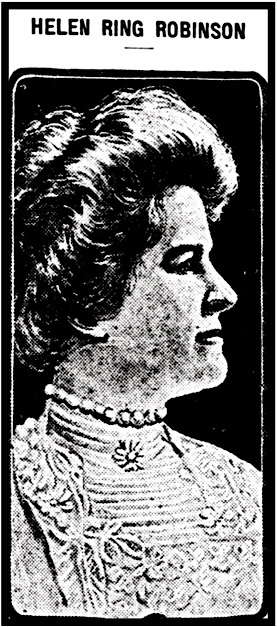
Senator Helen Ring Robinson, traveled to the strike zone of Southern Colorado, arriving on April 8th, to begin an investigation into the ongoing strike situation in order to report on conditions there for the New York American.
At Pueblo, she met with Manager Weitzel of the Colorado Fuel and Iron Company. Like his boss, J. D. Rockefeller Jr., she found him to be a man of fine manners, high ideals, and impeccable courtesy. An unnamed appointee of Governor Ammons was not, however, so easily impressed by such high-class affectations, and confided to the Senator that the brutality directed against the strikers has so sickened him that he wished he had a few bombs to throw at certain people.
She made a tour of the mining camps and saw no sign of the bathhouses nor the recreation centers, nor the dance halls of which Mr. Rockefeller spoke so proudly during his testimony earlier this week before the House Committee in Washington. She did find plenty of saloons, however, along with dreary company shacks covered in soot near smoking piles of slack.
She also made a tour of the strikers’ tent colonies, where she found the people enjoying the warmth of spring after enduring the long Colorado winter in the tents. The colonist, made up of twenty-two different nationalities, have grown close during the long cold months, especially the women and children. The Senator noted that the angelic children turn into “little fiends” when the militiamen enter the camps, shouting “scab-herders” and “Tin Willies” at them. Many of the older strikers have not forgotten the brutalities visited upon them by militiamen and company guards during the bitter strike of ten years ago.
Continue reading “Hellraisers Journal: Senator Helen Ring Robinson on Rockefeller’s “Conscience” and His War on Union Miners in Colorado” →
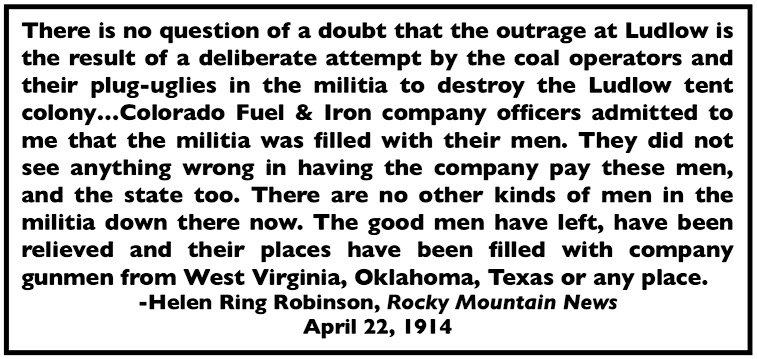 —————-
—————-
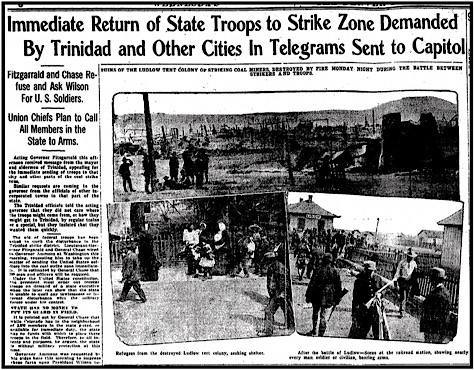
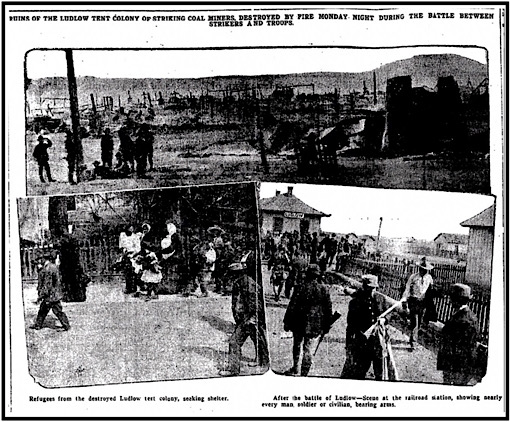
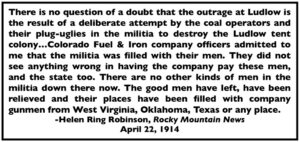 —————
—————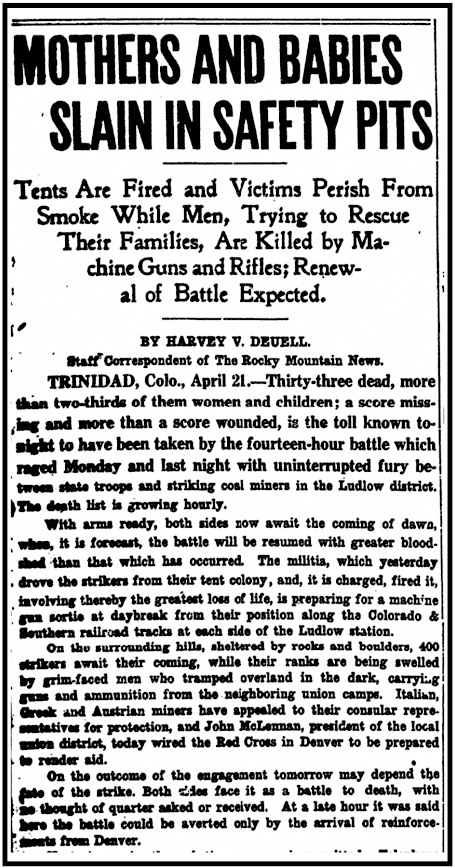
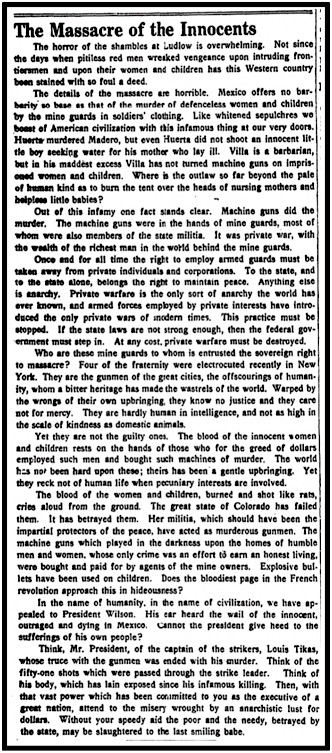
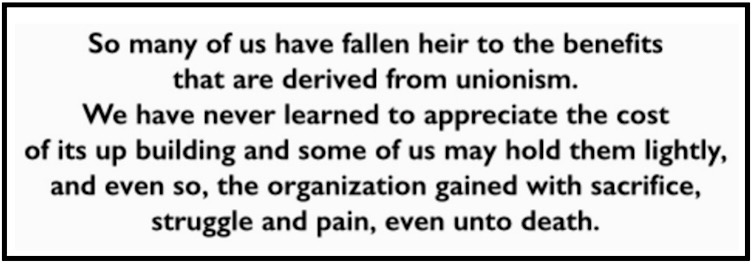 —————
—————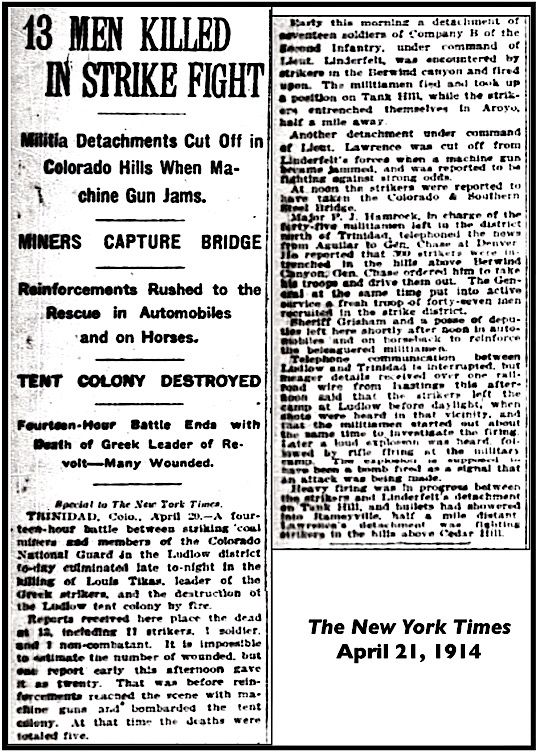
 —————
—————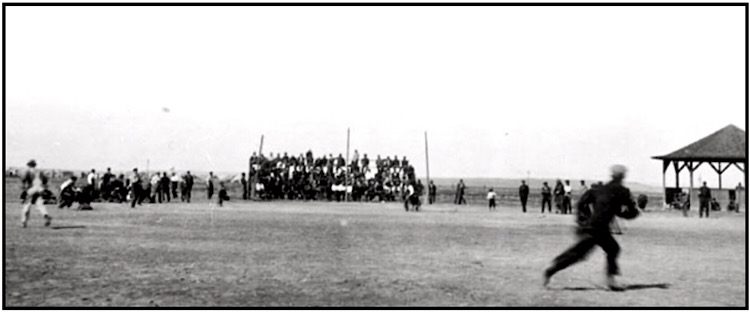
 —————
—————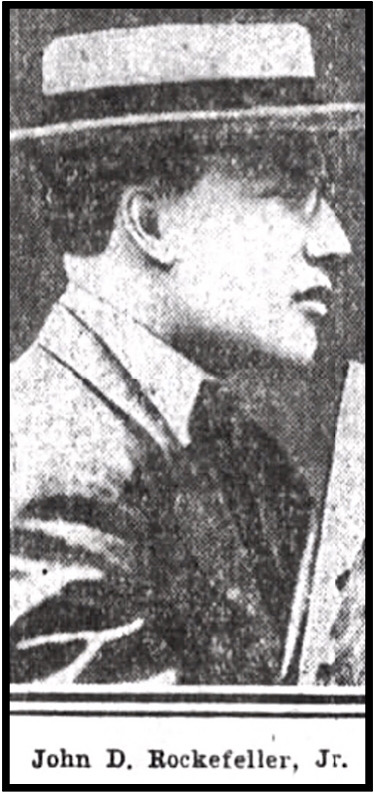
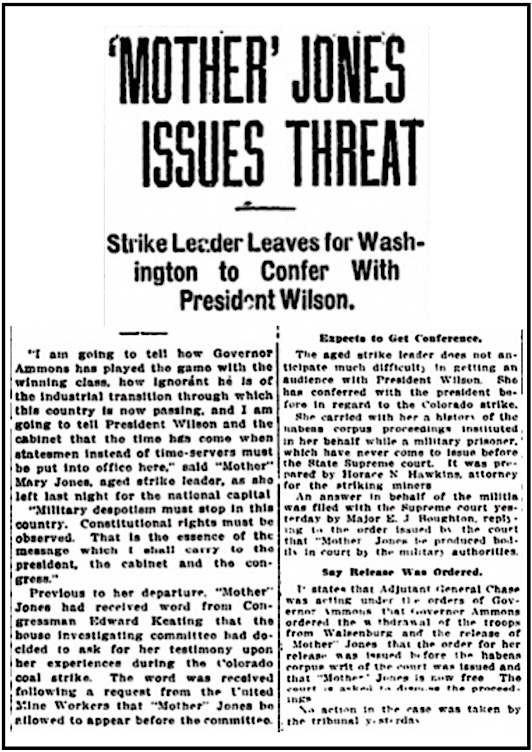
 —————
—————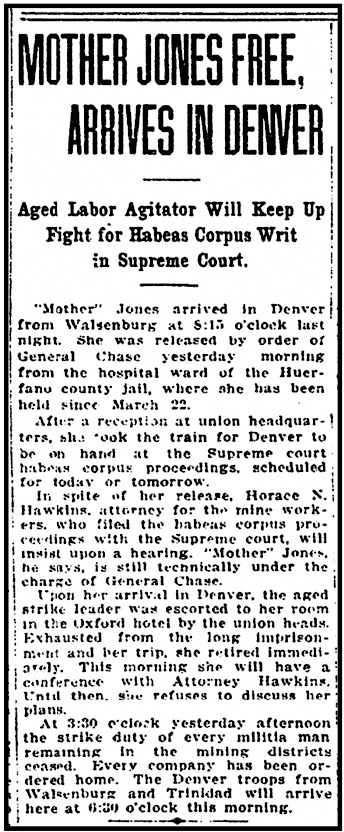
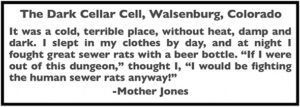 —————-
—————-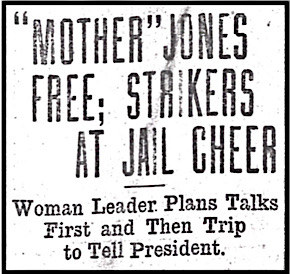
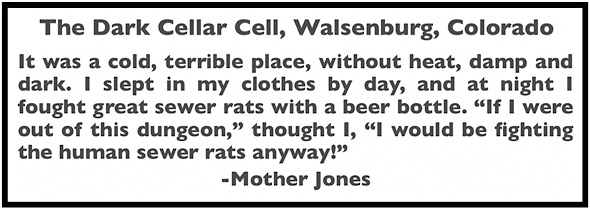 —————
—————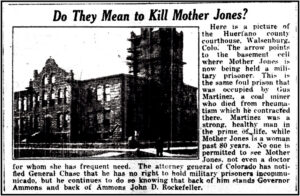
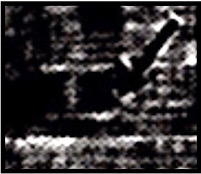
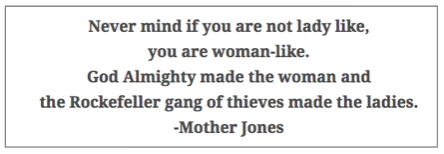 —————
—————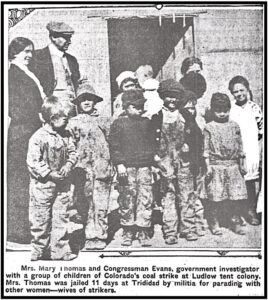 Mary Thomas, camp greeter of the Ludlow Tent Colony, reports that the social life of the camp has greatly improved with the coming spring. Once again she can enjoy her morning coffee outside with her dear friends and nearest neighbors, Cedi Costa and Margo Gorci. The children are once again at play on the swings and see-saws. Many of the colonist plant flowers and vegetables around the tents bringing a festive quality to the camp.
Mary Thomas, camp greeter of the Ludlow Tent Colony, reports that the social life of the camp has greatly improved with the coming spring. Once again she can enjoy her morning coffee outside with her dear friends and nearest neighbors, Cedi Costa and Margo Gorci. The children are once again at play on the swings and see-saws. Many of the colonist plant flowers and vegetables around the tents bringing a festive quality to the camp.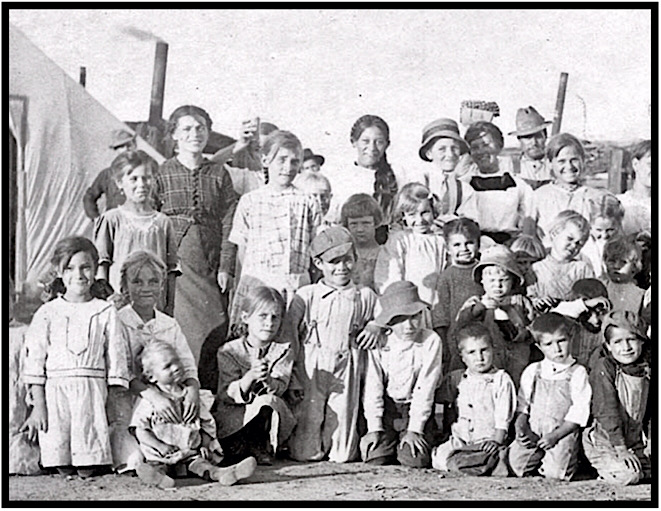
 —————
—————
